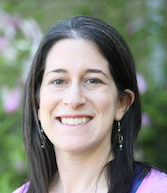When does Jacob do teshuvah for swindling his brother Esau out of birthright and paternal blessing? Reading over the brothers’ reconciliation in Parshat Vayishlach, I am struck by all that is missing. How can the brothers truly reconnect if past hurts are left buried?
As Esau approaches, Jacob’s actions show concern but not contrition. He divides his camp in case Esau attacks him, and sends expensive gifts to his brother’s entourage in the hopes of dampening a decades-old anger. Jacob prays to God for protection. But rather than acknowledging the actions that lie at the root of his exile, he reminds God of God’s promises of protection and blessing. The wrong done to Esau remains unspoken.
When Jacob finally meets Esau, the brothers weep and embrace each other, but Jacob offers favors and flattery instead of apologies: “Accept this gift from me, for to see your face is like seeing the face of God.” (Genesis 33:10). This praise is pretty substantial, given that Jacob has just wrestled with a likeness of God the night before.
Nahum Sarna suggests that because Esau does not reciprocate with gifts of his own, Jacob’s actions are to be seen as” a settlement of an old score, not an exchange of civilities.” The older twin would understand the implicit apology, and in accepting the gifts, forgive his brother. But what then to make of Jacob’s unease at accepting Esau’s offer to travel together (10: 12-16)? He knows that Esau will eventually want honesty from him; better to part ways before anger arises from what is still unsaid.
Jacob’s stature in his family begins to falter after he parts from Esau. Publicly naming one’s wrongdoing takes courage, and Jacob’s sons now know that he lacks that kind of strength. They take advantage of the power vacuum, squabbling with the inhabitants of the land and with each other. Jacob—who could not bring himself to speak words of apology to his brother—is left muted.
In September, I took a group of rabbis to Florida to learn about the work of the Coalition of Immokalee Workers to raise the wages of migrant workers in the tomato industry and stamp out slavery in the fields. As part of the visit, we met with Jon Esformes, owner of Pacific Tomatoes, who was the first Florida grower to sign a Fair Food Agreement with the CIW. The CIW’s Greg Asbed explained that Pacific Tomatoes’ fields had not previously been immune from cases of exploitation and abuse. Rather than sweeping that under the rug, on the day the Agreement was signed, Jon publicly acknowledged that there had been problems in his fields. That, said Greg, was the critical component in the workers’ trust that things were going to be different.
It wasn’t enough to agree to a better relationship between worker and farmer in the future; the abuses of the past had to be spoken about openly. That honesty created a stable foundation for the future: it was clear to all of us visiting the farm that there was a strong bond between the management and the workers at Pacific Tomatoes. This was true teshuvah. And this teshuvahopened space for deep communications between parties that previously would not speak.

